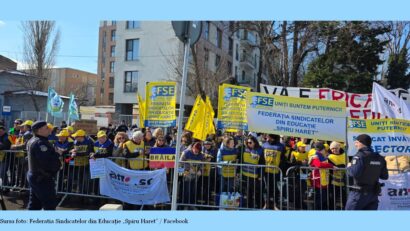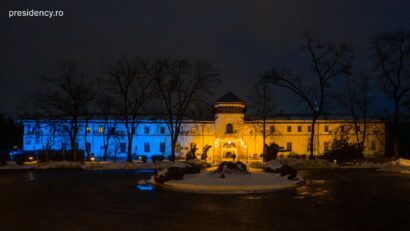Anti-deepfake guide
The National Directorate of Cyber Security in Bucharest has launched a guide on the identification of deepfake materials.

Roxana Vasile, 02.04.2024, 13:50
Informed or manipulated? The use of digital technology to create systems capable of performing tasks, considered until recently exclusively human in nature, is certainly a historic revolution. And, in a very short period of time, the advances in the development of what everyone knows as “artificial intelligence” are huge. It is already used in many applications in everyday life – virtual assistance, medical diagnostics, automatic translations, navigation tools, quality control in the manufacturing process or anticipation of natural disasters.
However, the benefits of artificial intelligence, unfortunately come with potential risks. Advanced artificial intelligence techniques can be used to create false photo or audio-video content, able to easily manipulate a large audience. There have been cases, including in Romania, of videos with public personalities who offer so-called financial advice and strongly recommend investing in a certain company or business with high profits and minimal risks. The picture and sound quality are high, the respective public figures seem sincere and convincing, using accessible language and persuasive arguments.
The videos are shared on social networks, are watched by millions of people, and many of those who see them can be easily deceived into investing in the recommended business, in reality illegal, and risk losing significant amounts of money to manipulators who have created the videos.
On Monday, the National Cyber Security Directorate in Bucharest launched a guide on identifying deepfake materials. The main objective is to raise awareness over cyber security risks. The guide contains detailed information about what deepfake means, the process of making it and how such materials can be identified. Available on the dnsc.ro website, the guide also teaches Romanians what to do if they fall victim to a deepfake.
The Directorate of Cyber Security also signals the fact that the manipulation of artificial intelligence can have dire consequences not only on a single individual, but on the whole society. Let’s not forget, for example, that, this year, in Romania, all four types of electoral polls are taking place. In the digital field, where the border between reality and fiction is constantly blurring, the electoral process goes beyond the simple confrontation of ideologies and political promises, turning into a complex terrain of ideological struggle. Or, deepfake technologies, capable of almost perfectly reproducing images and voices, can, among other things, significantly influence the opinion and vote of the electorate during election campaigns. So, outmost attention is recommended. (EE)






























